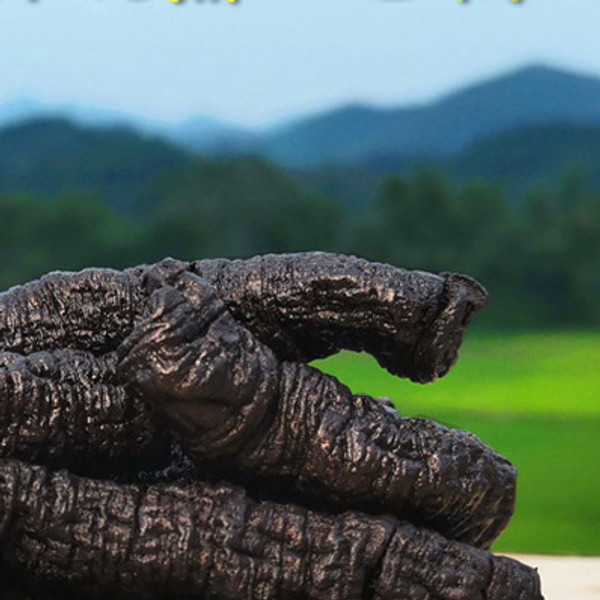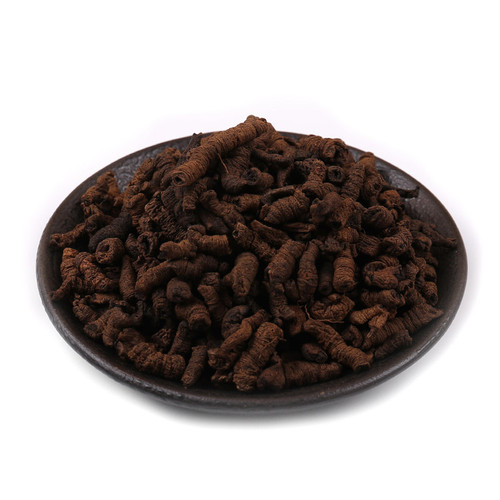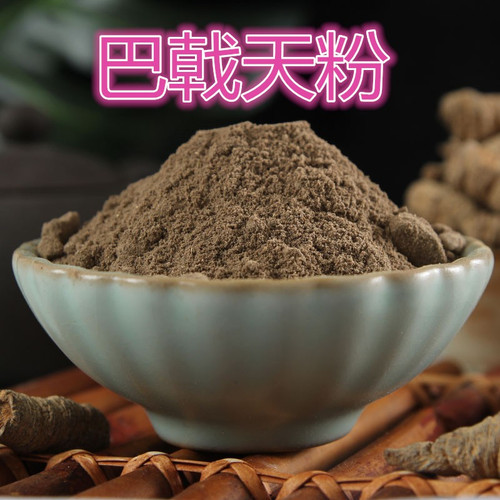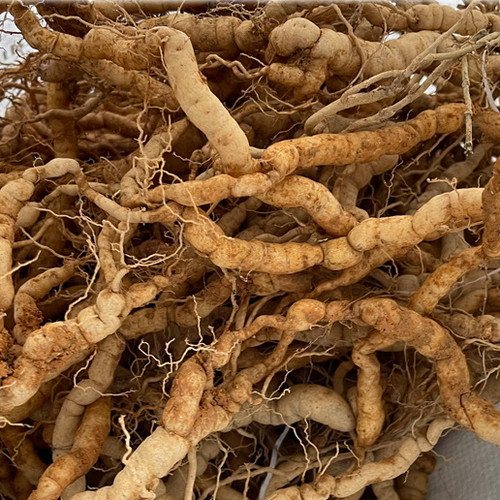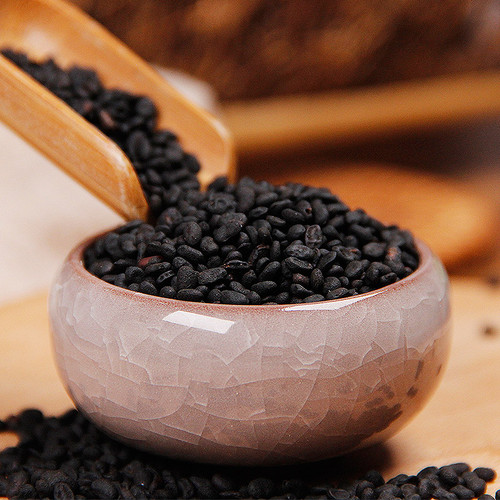Product Overview
Parts used: Dried root
TCM category: Tonic herbs for Yang Deficiency
TCM nature: Warm
TCM taste(s): Pungent Sweet
Meridian affinity: Kidney Liver
Scientific name: Morinda officinalis
Other names: Indian mulberry
Use of morinda roots (Ba Ji Tian) in TCM
Please note that you should never self-prescribe TCM ingredients. A TCM ingredient is almost never eaten on its own but as part of a formula containing several ingredients that act together. Please consult a professional TCM practitionner, they will be best able to guide you.
Preparation: Steam thoroughly, extract the wooden heart of the root while hot, cut into sections and dry.
Dosage: 3 - 12 grams
Main actions according to TCM*: Tonifies the Kidney Yang. Expels Wind-Damp-Cold painful obstruction (Bi Pain).
Primary conditions or symptoms for which morinda roots may be prescribed by TCM doctors*: Impotence Infertility Irregular menstruation Arthralgia
Contraindications*: Should not be used by those with either Heat signs caused by Yin Deficiency or Damp Heat patterns. It should not be used by those who are having difficulty urinating.
Common TCM formulas in which morinda roots are used*:
For male impotence or clear vaginal discharge caused by Kidney Yang Deficiency combine morinda roots with cloves (Ding Xiang) and cinnamon bark (Rou Gui).
Key TCM concepts behind morinda roots (Ba Ji Tian)'s properties
In Traditional Chinese Medicine (TCM), morinda roots are plants that belong to the 'Tonic herbs for Yang Deficiency' category. Tonic herbs are used for patterns of Deficiency, when one lacks one of the 'Four Treasures' (Qi, Blood, Yin and Yang). Yang Tonics are generally used in combination with a small amount of Yin tonics. If Yin is deficient, neither Qi nor Yang herbs alone will be effective. The most common symptoms associated with Yang Deficiency are low libido and impotence. It is worth mentioning that another very effective remedy against Yang Deficiency is regular exercise.
Furthermore morinda roots are plants that are Warm in nature. This means that morinda roots tend to help people who have too much "cold" in their body, although with less effect than a plant that would be Hot in nature. Balance between Yin and Yang is a key health concept in TCM. Those who have too much cold in their body are said to either have a Yin excess (because Yin is Cold in nature) or a Yang deficiency (Yang is Hot in Nature). Depending on your condition morinda roots can help restore a harmonious balance between Yin and Yang.
Morinda roots also taste Pungent and Sweet. The so-called "five elements" theory in Chinese Medicine states that the taste of TCM ingredients is a key determinant of their action in the body. Pungent ingredients like morinda roots tend to promote the circulations of Qi and body fluids. That's why for instance someone tends to sweat a lot when they eat spicy/pungent food. On the other hand Sweet ingredients tend to slow down acute reactions and detoxify the body. They also have a tonic effect because they replenish Qi and Blood.
The tastes of ingredients in TCM also determine what organs and meridians they target. As such morinda roots are thought to target the Kidney and the Liver. According to TCM, the Kidneys do not only regulate the urinary system but also play a key role in the reproductive system and the growth and aging process of the body. The Liver on the other hand is often referred as the body's "general" because it is in charge of regulating the movements of Qi and body fluids. It also takes a leading role in balancing our emotions.
